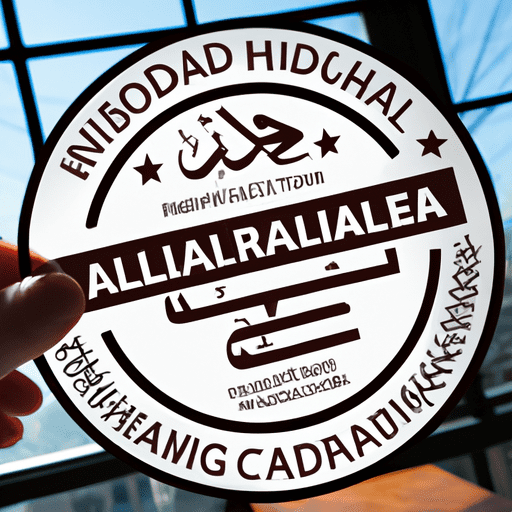Halal food is food that is permissible according to Islamic law. The term ‘halal’ means ‘permissible’ in Arabic, and it is an essential part of the Muslim faith. Halal food and ingredients must be handled, prepared and slaughtered according to precise Islamic guidelines, making it suitable for consumption by Muslims.
Halal food certification is a crucial process that enables Muslim consumers to trust that what they are consuming is halal. While the certification process may seem straightforward, it is a nuanced process that requires reliable Islamic authorities to carry out inspections and audits.
In this article, we explore the halal food certification process and highlight the essential role of accredited agencies in ensuring food is halal.
What is Halal Food?
Halal food refers to food that is permissible according to Islamic law. The basic principle of halal food is that it should not contain any elements that would be considered impure under Islam. For instance, pork and its byproducts are not halal, and neither are alcohol and some other types of food.
According to Islamic law, halal food should contain only plant or animal products that are permitted for consumption. Meat, for example, must come from animals slaughtered according to Islamic guidelines, and it should not be mixed with any non-halal additives.
Halal food is widely consumed worldwide, and interest in halal food is increasing. The market for halal food is growing, and it is now estimated to be worth over $2 trillion globally.
What is Halal Food Certification?
Halal food certification is the process whereby food manufacturers, distributors, and retailers are audited to ensure that food is halal. The certification process involves a range of audits and inspections, including visits to production facilities, testing of ingredients, and evaluation of manufacturing processes.
Halal food certification provides Muslim consumers with trust and transparency that the food they are consuming complies with Islamic law. The certification of halal food ensures that consumers can have confidence in the authenticity of the food they purchase.
The Halal Food Certification Process
The halal food certification process is a complex and critical process that involves multiple stages. These include:
1. Application: The certification process for halal food certification starts with the submission of an application by the food producer or distributor.
2. Audit: An auditor or inspection body will visit the manufacturing site, processing plant or distributor to review their processes, procedures and ingredients used. Auditors will check that food is sourced from halal certified suppliers and approved by Islamic scholars.
3. Review: Following an audit, the certification body will review the findings and determine eligibility for certification either halal or not halal.
4. Certification: If the review process determines the food to be halal, the certification body will provide a halal certificate which will display the name of the authorized establishment, product, and validity date.
5. Monitoring: Halal certification is not a one-time process; it must be reviewed and renewed regularly. The certification body will monitor continued compliance with halal requirements throughout the certification period.
Role of Accredited Agencies in Halal Food Certification
The accreditation of agencies that certify halal food is critical in the halal certification process. Accredited agencies conduct rigorous assessments of organizations to ensure they meet specific standards in the certification process.
Accreditation is a process whereby a third-party agency assesses the competence and impartiality of the certification body. This process ensures the halal certification body is operating at a high standard and is providing independent certificate.
Accreditation provides assurance to the end consumer that their halal certification is reliable and credible. Without accreditation, multiple certification bodies could exist, and halal certificates may not be consistent in their standards and requirements.
The role of an accredited agency is critical in ensuring that the certification of halal food is trustworthy, reliable and credible. Accreditation provides assurance to Muslim consumers that the products they are consuming meet halal requirements.
Halal Accreditation Bodies
In recent years the number of halal accreditation bodies throughout the world has grown. Some of the most prominent halal accreditation bodies include the following:
1. GCC Accreditation Center (GAC)
The Gulf Cooperation Council Accreditation Center is the Gulf’s leading accreditation body that ensures conformity to International Standards. The agency accredits organizations providing halal certificated products and services to Islamic countries in the Gulf.
2. Emirates International Accreditation Center (EIAC)
EIAC is a Dubai-based organization that specializes in accrediting certification bodies that provide halal certifications. The accreditation body has been recognized by the International Halal Accreditation Forum (IHAF) and the GCC Accreditation Center (GAC).
3. The Halal Food Authority (HFA)
HFA is a UK based charity that offers halal food certification to food businesses in the UK and worldwide. It offers certification for a wide range of products, including meat products, dairy products, and processed foods.
4. Islamic Food and Nutrition Council of America (IFANCA)
IFANCA is one of the largest halal certification agencies in North America, and it offers halal certification for a wide range of food and beverage products.
5. Majelis Ulama Indonesia (MUI)
MUI is the government-appointed body that issues halal certifications in Indonesia. The agency monitors the slaughtering of animals, the processing of halal products and ensures Islamic teachings are incorporated into food production.
Conclusion
In conclusion, halal food certification is a crucial process that provides trust and transparency for Muslim consumers. The certification process is complex and involves a range of audits and inspections to ensure that food meets strict Islamic guidelines.
Accredited organizations play a critical role in ensuring the integrity of the halal food certification process. They provide reassurance to the end consumer that their halal certification is reliable and credible. With the rise in demand for halal food globally, the role of accredited organizations will become ever more important.

